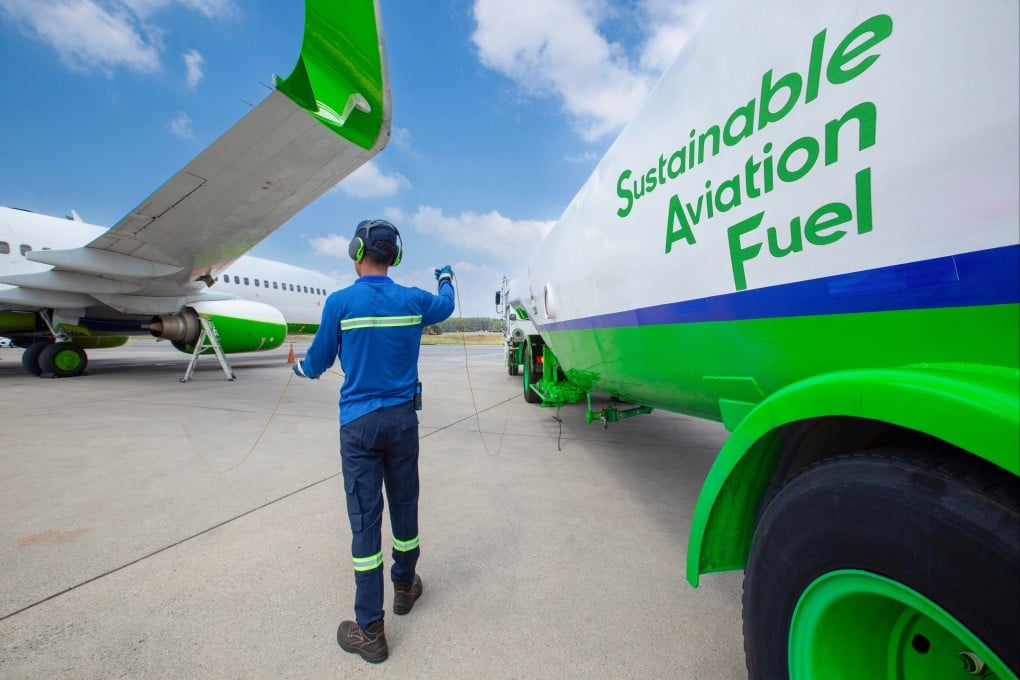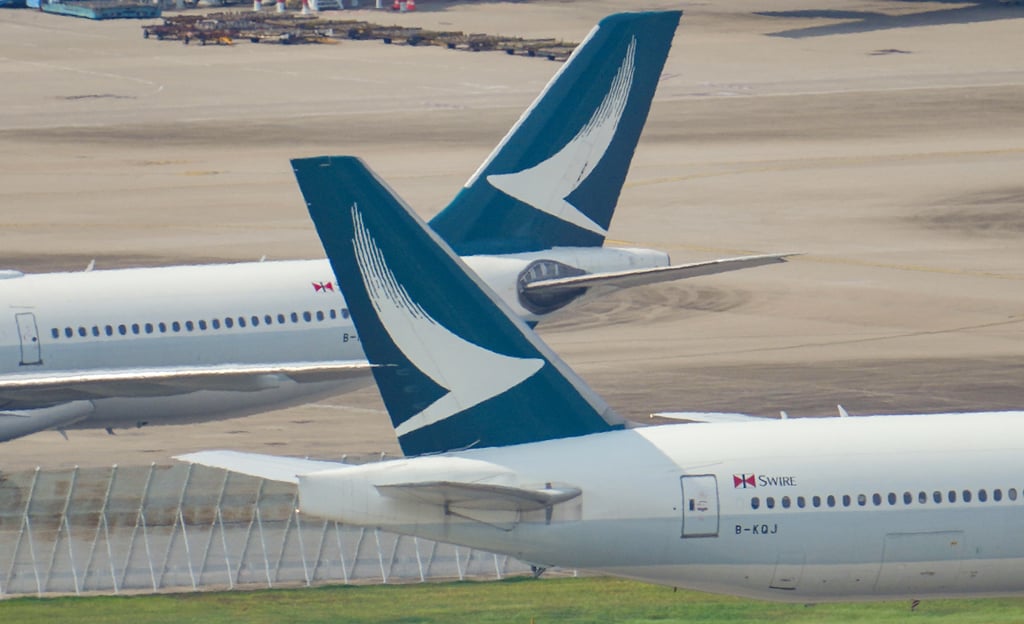Hong Kong’s aviation future hinges on sustainable fuel policies, experts say
The industry is awaiting Chief Executive John Lee’s policy address, with experts saying investment in SAF is vital for Hong Kong to maintain aviation hub status

Hong Kong must set forth policies mandating the use of sustainable aviation fuel (SAF) and incentivise supply to maintain its competitiveness as an aviation hub, according to sustainability executives.
Solving the “chicken-and-egg” problem of low demand and low supply of SAF requires government intervention, said Mark Harper, group head of sustainability, John Swire & Sons (HK), which controls the city’s flagship carrier Cathay Pacific Airways.
Some 70 per cent of the property-to-aviation conglomerate’s greenhouse gas emissions is attributable to its stake in Cathay, of which 98 per cent is attributed to jet fuel use, he said.
“Currently, about 80 per cent of the global supply [of SAF] is produced in North America and Europe because of tax incentives that de-risked investment in the industry,” Harper said at the Hong Kong Green Finance Association’s (HKGFA) annual forum on Wednesday. There is a lack of similar investment here in Hong Kong and southern China, he added.
“It will be interesting to see what appears in next [Wednesday’s] chief executive policy address, because investment in SAF is vital if Hong Kong is to remain a global aviation hub.”

In last year’s policy address, Chief Executive John Lee Ka-chiu said the Airport Authority would formulate an action plan to drive SAF usage in Hong Kong, as part of efforts to drive the transport sector’s green transformation. The authority will also work with government departments to simplify the approval process for the transport and storage of SAF this year.
